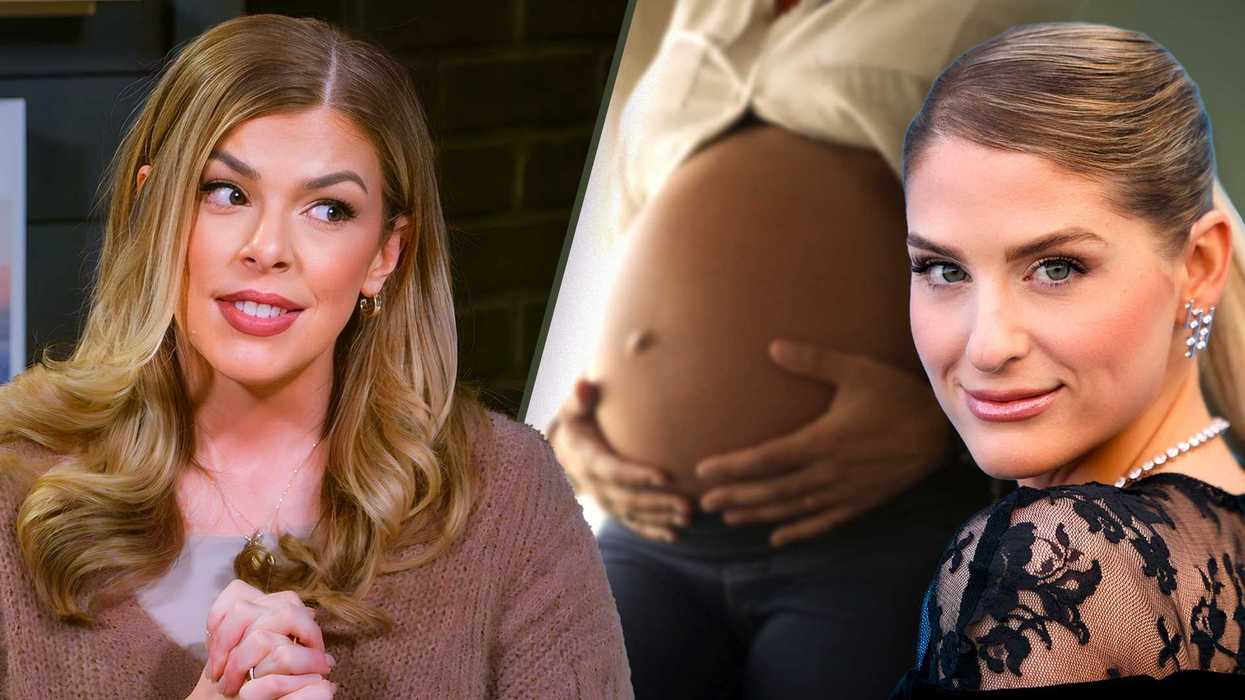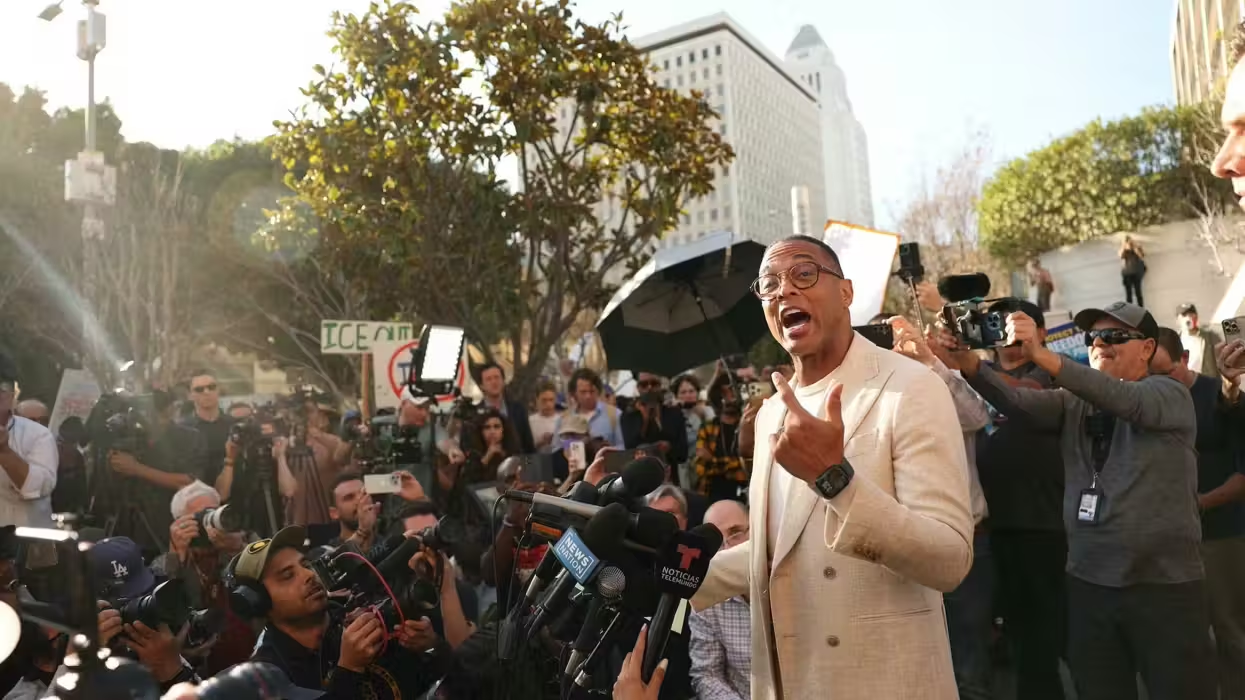Is political prognostication the only career -- besides being a Member of Congress -- where being wrong seems to have no bearing on future employment?
Consider what happened last Wednesday when House Majority Leader Eric Cantor (R-VA) lost his re-election bid to a little-known, little-funded opponent -- a political unheaval that rocked Washington. Cantor was expected to win by at least 10 percentage points, but lost by that margin instead.
Likewise, Republicans Louisiana Gov. Bobby Jindal, Florida Sen. Marco Rubio, and Texas Gov. Rick Perry are likely 2016 GOP presidential primary candidates. However, in the not-so-distant past, all three of these political leaders were considered politically sunk. And it wasn't just mainstream and liberal media outlets claiming this -- conservative media jumped on the proverbial horse.
 U.S. Sen. Marco Rubio (R-FL) sips water while addressing the 40th annual Conservative Political Action Conference (CPAC) March 14, 2013 in National Harbor, Maryland. A slate of important conserative leaders are slated to speak during the the American Conservative Union's annual conference. (Getty Images)
U.S. Sen. Marco Rubio (R-FL) sips water while addressing the 40th annual Conservative Political Action Conference (CPAC) March 14, 2013 in National Harbor, Maryland. A slate of important conserative leaders are slated to speak during the the American Conservative Union's annual conference. (Getty Images)
For Jindal, it was his 2009 State of the Union response. Rubio's sip of water dominated coverage of his State of the Union rebuttal in 2013, and who can forget that the Florida senator was the man who led the Senate to the very bad immigration bill stalled in the House? Perry, of course, had a bad run for president in 2012 that some blame on back surgery that hindered his performance.
Yet, all three are back in the saddle, and possibly aiming at the 2016 nomination. And their entries into the race makes sense -- all three have talents that a presidential candidate would want.
Jindal has education, health care, pro-life, and budget policy chops, as well as minority heritage and time as a member of Congress and a governor. Rubio has foreign policy speeches, Hispanic heritage, and solid rhetoric against the Obama agenda. Perry has red-meat conservatism in his speeches, 14 years as a successful governor, and Texas' economic record.
Yet, just months or single-digit years ago, they were dead and gone, according to the pundits.
They're not the only victims of pundit presumption. In 2012, conservatives were joyfully proclaiming the end of President Obama's time in the White House. Yet, despite instincts born of decades in politics - and purposeful rejection of the polls -- respected pundits like Michael Barone and George Will were forced to eat crow for some time for completely missing the boat on what the elections would bring in.
Less-known, less-respected wanna-be pundits who thought Gov. Mitt Romney would eke out victory, like this author, were also held accountable by gleeful liberals in familial and friend circles.
And who can forget that in 2008 the presidency of Hillary Clinton was inevitable? A senator, the wife of the most popular living president, and a shoo-in to be the first woman president.
 Former Secretary of State Hillary Clinton poses with her new book, 'Hard Choices' during a book signing at a Barnes & Noble on June 10, 2014 in New York City. (Andrew Burton/Getty Images)
Former Secretary of State Hillary Clinton poses with her new book, 'Hard Choices' during a book signing at a Barnes & Noble on June 10, 2014 in New York City. (Andrew Burton/Getty Images)
On Sunday talk shows, evening cable talk shows, radio and Internet shows, and so-called "straight news" cable shows, pundits are in high demand. They provide entertainment, make outrageous statements, and are given as much credence as actual policy experts, theologians, philosophers, business owners, military veterans, and other real experts in individual fields of thought and work.
Yet, the pundit class is typically wrong about its political prognosticating. In many respects, their alleged expertise has no more value than that of an average person who follows the daily news. Consider how many times the Tea Party has been declared dead, or President Obama on the last legs of his presidency.
Not all pundits are wrong, and not all the wrong pundits should be ignored when discussing issues that fall inside their areas of expertise. But the business of political forecasting is one that relies heavily on guesswork -- and unless you're Nate Silver or the folks at Race42016.com, and a handful of other organizations, your guesswork is just that -- guessing.
–
TheBlaze contributor channel supports an open discourse on a range of views. The opinions expressed in this channel are solely those of each individual author.


 U.S. Sen. Marco Rubio (R-FL) sips water while addressing the 40th annual Conservative Political Action Conference (CPAC) March 14, 2013 in National Harbor, Maryland. A slate of important conserative leaders are slated to speak during the the American Conservative Union's annual conference. (Getty Images)
U.S. Sen. Marco Rubio (R-FL) sips water while addressing the 40th annual Conservative Political Action Conference (CPAC) March 14, 2013 in National Harbor, Maryland. A slate of important conserative leaders are slated to speak during the the American Conservative Union's annual conference. (Getty Images)






